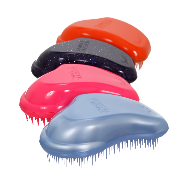 How do you choose your plastic injection moulding supplier? Is it the same way you choose which football team to support? Perhaps they are local and you support them despite their performance and history? However, when it comes to injection moulding you can find a winning team without having to pay premiership prices.
How do you choose your plastic injection moulding supplier? Is it the same way you choose which football team to support? Perhaps they are local and you support them despite their performance and history? However, when it comes to injection moulding you can find a winning team without having to pay premiership prices.
With over 23 years in the business we are happy to share our knowledge and experience with you, so when you’re next looking to place an order follow these top 10 tips. We hope you will consider talking to us, but this advice applies to every good moulder.
1 Review: Is your design fit for purpose? This may sound odd, but you can pay more money having a tool highly polished when the application indicates that a simple machine finish is fine for the application.
2 Check that you are specifying the right plastic. Ask our advice. Good moulders will ask questions such as: Where will the part be used? If outside the material should be UV stabilised. Plastics can also be flavoured, perfumed, self-lubricating, colour changing, ultra high or ultra-low temperature safe, and so on – so do discuss with your moulder at an early date what you want the component to do and what all the possibilities are.
3 Cleanliness. If you need a clean contamination-free part delivered, is the moulding shop clean? Or in the case of a medical component or food related product is it moulded in a certified sterile ISO 13485 Class 7 cleanroom? Take a look around before placing your order.
 4 Design. The right design can save you a fortune. You can’t involve the toolmaker early enough. Often you can design in a way to make the tooling “open and shut” rather than by adding potentially costly inserts. Equally, you can build in features that save money later. We have dozens of examples to illustrate the point. Use our experience.
4 Design. The right design can save you a fortune. You can’t involve the toolmaker early enough. Often you can design in a way to make the tooling “open and shut” rather than by adding potentially costly inserts. Equally, you can build in features that save money later. We have dozens of examples to illustrate the point. Use our experience.
5 Volumes. Know what your planned annual volumes are likely to be and what an average order size will be placed. Getting this right, leads to specifying the right tooling size and can save considerable sums.
6 Budget. Ideally you need to have both a tooling and piece-price in mind. At this early stage we can provide an estimate to enable a quick reality check regarding costs.
7 Prototyping. Chances are you may want to see a low cost prototype. We 3D print in a tough ABS that is 70% the strength of a moulded part so that you can actually use the sample. We also refund all prototype costs if you later place the tooling order with us.
8 Drawings. Your moulder/ toolmaker should be able to work from a sketch, a detailed 2D drawing or (for 3D printing) a 3D drawing, but if you need design input your moulder should be able to help you. We can handle data in just about any format, and can, if required, turn a 2D into a 3D drawing for you.
9 Time to market. An early meeting to agree the time to market means that you can expect a firm delivery date for the tooling and the first-off samples. Beware of toolmakers who offer lightning fast deliveries and then deliver late. Whereas a 3D sample can be created overnight. A single or set of production tooling can typically take between eight and ten weeks. What you need are tools that run well, to size and are aesthetically correct and are fit for purpose. Make sure that you understand what you are getting for your money and ask as many questions as you need.
10 Review a brief check list;
-
Know what you’re buying. You want a tool. Don’t just buy inserts. If your moulder goes broke you may not be able to find another who can run your part tool.
-
Never agree to buy just half a tool or “Part Cost. This is a defensive approach by some moulders. You need to be able to re-site your tooling if required and you will have a poor negotiating position.
-
Check to ensure all your RFQs and quotations replies are the same. The cheapest tooling price could equate to the highest part cost.
-
Ensure your tooling is insured by the moulder all the time the tool remains with them.
-
Ask for and keep “Gold Samples” in your quality department so that both QA teams have an agreed quality standard.
Finally like most relationships, it is worth spending time to get to know one another. Visit and look around the facility before you place an order. Equally, we like our staff to be able to visit to see your operation and meet your QA design, purchasing and administration staff.
Data Plastics Ltd
Email: sales@dataplastics.co.uk
Tel: 01993 700777
